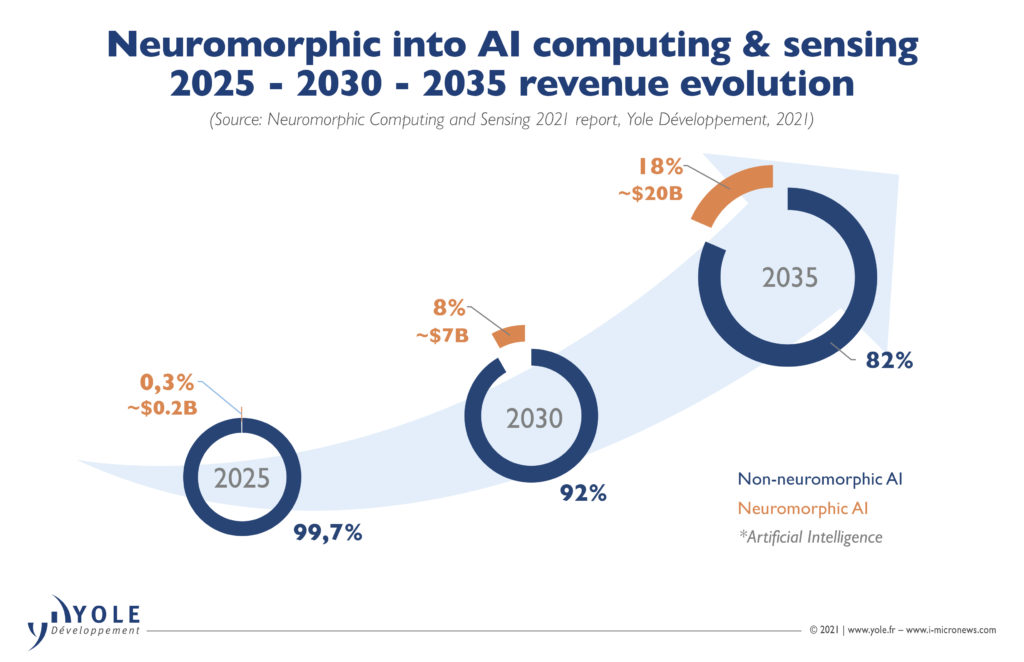On November 16, 2021 at 9 am PT (noon ET), Pierre Cambou, Principal Analyst in the Photonics and Sensing Division, and Adrien Sanchez, Technology and Market Analyst for Computing and Software in the Semiconductor, Memory and Computing division , both of Yole Développement, will present the free hour webinar “Neuromorphic Sensing and Computing: Compelling Options for a Host of AI Applications,” organized by the Edge AI and Vision Alliance. Here’s the description, from the event registration page:
Artificial intelligence (AI) is transforming the way we design chip processing units (xPUs) and accompanying sensors, as well as how we develop systems based on them. Numerous suppliers are contending for market dominance, each with differing strategies for implementing AI in silicon and accompanying software. Deep learning, currently the predominant paradigm, leverages ever-larger neural networks, initially built with vast amounts of training information and subsequently fed with large sets of inference data from image and other sensors. This brute force approach requires powerful xPUs with exponentially growing performance metrics and is increasingly limited by cost, size, power consumption and other constraints.
Today’s AI accelerators are already highly optimized, with next-generation gains potentially obtained via near or in-memory compute…but what after that? Brain-inspired, asynchronous, energy-efficient neuromorphic sensing and computing aspires to be the long-term solution for a host of AI applications. Whether for new kinds of human-to-machine interfaces, visual recognition processes currently constrained by power efficiency consideration, or new-frontier applications where real-time learning is necessary, neuromorphic sensing and computing are increasingly the superior option. As such, a decade (or so) from now they may represent a significant share of the ICs built and sold.
This webinar will begin with an overview of neuromorphic sensing and computing concepts, followed by a review of target applications. Next, Cambou and Sanchez will evaluate the claims made by neuromorphic technology developers and product suppliers, comparing and contrasting them with the capabilities and constraints of mainstream approaches both now and as both technologies are expected to evolve in the future. A question-and-answer session will follow the presentation.
To register for this free webinar, please see the event page. For more information, please email [email protected].


